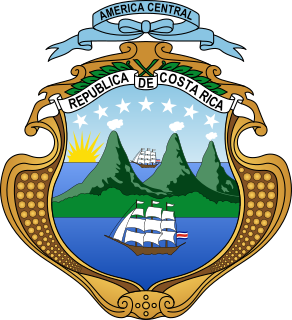
The politics of Costa Rica take place in a framework of a presidential, representative democratic republic, with a multi-party system. Executive power is exercised by the president and his cabinet, and the President of Costa Rica is both the head of state and head of government. Legislative power is vested in the Legislative Assembly. The president and 57 Legislative Assembly deputies are elected for four-year terms. The judiciary operates independent of the executive and the legislature but remains involved in the political process. Costa Rica is a republic with a strong system of constitutional checks and balances. Voting is compulsory in Costa Rica but it is not enforced.

The Social Christian Unity Party is a centre-right political party in Costa Rica.

Democratic Force nicknamed “El Naranjazo” was a political party in Costa Rica.
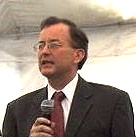
Ottón Solís Fallas is a Costa Rican politician. He graduated with a Bachelor of Economics from the University of Costa Rica in 1976 and gained a Master's Degree in Economics from the University of Manchester in 1978. He is currently serving his second term as deputy, was a founding member of the Citizens' Action Party, and ran as its three-time presidential candidate. As an academic, he has taught at several universities in the United States and Costa Rica.

The National Union Party is the name of several liberal conservative parties in Costa Rica, generally located right-to-center in the political spectrum.

General elections were held in Costa Rica on 26 July 1953. José Figueres Ferrer of the National Liberation Party won the presidential election, whilst his party also won the parliamentary election. Voter turnout was 67.2 percent in the presidential election and 67.5 percent in the parliamentary election.

General elections were held in Costa Rica on 2 February 1958. Mario Echandi Jiménez of the National Union Party won the presidential election, whilst the National Liberation Party won the parliamentary election. Voter turnout was 64.7%.
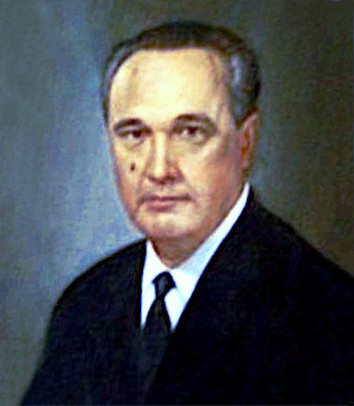
General elections were held in Costa Rica on 6 February 1966. José Joaquín Trejos Fernández of the National Unification Party won the presidential election, whilst the National Liberation Party won the parliamentary election. Voter turnout was 81.4%.

General elections were held in Costa Rica on 1 February 1970. José Figueres Ferrer of the National Liberation Party won the presidential election, whilst his party also won the parliamentary election. Voter turnout was 83.3%.

General elections were held in Costa Rica on 3 February 1974. Daniel Oduber Quirós of the National Liberation Party won the presidential election, whilst his party also won the parliamentary election. Voter turnout was 79.9%.

General elections were held in Costa Rica on 5 February 1978. Rodrigo Carazo Odio of the Unity Coalition won the presidential election, whilst his party also won the parliamentary election. Voter turnout was 81%.
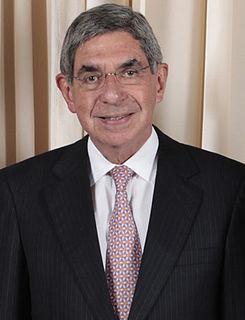
General elections were held in Costa Rica on 2 February 1986. Óscar Arias of the National Liberation Party won the presidential election, whilst his party also won the parliamentary election. Voter turnout was 81.8%.

General elections were held in Costa Rica on 4 February 1990. Rafael Ángel Calderón Fournier of the Social Christian Unity Party won the presidential election, whilst his party also won the parliamentary election. Voter turnout was 81.8%.

General elections were held in Costa Rica on 1 February 1998. Miguel Ángel Rodríguez of the Social Christian Unity Party won the presidential election, whilst his party also won the parliamentary election. Voter turnout was 70%, the lowest since the 1950s.

A primary election was held among the members of Costa Rica’s National Liberation Party (PLN) on June 3, 2001 in order to choose PLN’s nominee for presidency in the 2002 general election. PLN was then the main opposition party facing then in government Social Christian Unity Party. This, as was common since the 70s, was an open primary and as such all Costa Ricans could vote in it with the only requirement be signing membership of the party moments before entering the polls.

The 2013 presidential primary of the Social Christian Unity Party of Costa Rica was held on May 9, 2013 as part of the Costa Rican general election, 2014. The two main traditional factions of PUSC competed for the nomination. On one hand physician and director of Costa Rica's Children's Hospital Dr. Rodolfo Hernández, and on the other lawyer, businessman and former president of the Costa Rican Social Security Fund Rodolfo Piza. This was PUSC's fifth primary election in its history and the first in twelve years.
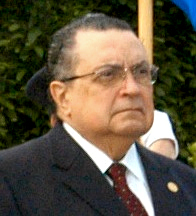
The 2001 presidential primary of the Social Christian Unity Party of Costa Rica was held on June 10, 2001 as part of the Costa Rican general election, 2002.

Liberalism in Costa Rica is a political philosophy with a long and complex history. Liberals were the hegemonic political group for most of Costa Rica’s history specially during the periods of the Free State and the First Republic, however, as the liberal model exhausted itself and new more left-wing reformist movements clashed during the Costa Rican Civil War liberalism was relegated to a secondary role after the Second Costa Rican Republic with the development of Costa Rica’s Welfare State and its two-party system controlled by social-democratic and Christian democratic parties.

The Reform State or Reformist State is a period in Costa Rican history characterized by the change in political and economic paradigm switching from the uncontrolled capitalism and laissez faire of the Liberal State into a more economically progressive Welfare State. The period ranges from approximately 1940 starting with the presidency of social reformer Rafael Angel Calderón Guardia and ends around the 1980s with the first neoliberal and Washington Consensus reforms that begun after the government of Luis Alberto Monge.























